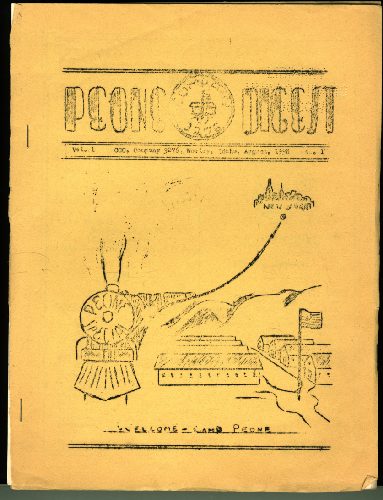Civilian Conservation Corps at 70

April 2003
Seventy years ago this month, the Civilian Conservation Corps was established (as the Emergency Conservation Work agency, its official name until 1937). Ten days after the legislation was introduced in Congress, as part of President Roosevelt's depression-era recovery schemes, the Secretary of Agriculture sent out telegrams to governors of each affected state and requested they send a representative to a conference making implementation plans. Governor C. Ben Ross followed through on this initiative by sending three representatives. With a great part of the state in federal forest and range lands, Ross was quick to capitalize on this job creation scheme. Idaho eventually had 163 camps in all parts of the state, although most were below the Salmon River.
While Idaho benefited from this federal program, slightly more than two-thirds of the corps workers were from out of state. From the East and the Midwest, many had never been to the West before, and found Idaho's mountains, rivers, and plains extraordinary. At Camp Peone, near Worley, Idaho, many were from New York City; Barry Reno was asked why he had joined the CCC: "I joined for practically the same reasons as the average enrollee's. I couldn't find work and was tired of hanging around corners or loafing at home. I thought that in the C's I might learn something new that might help me to land a job when my time was up. The idea of seeing more of the country also appealed to me. It has been a new and novel experience and I am glad that I did join."
Frederick T. Feil, a Chicagoan, came to Idaho's CCC Camp #1645, French Creek Camp, north of Pierce, Idaho, at nineteen. He remembers: "Idaho was a truly amazing place. The rivers were so fast, the foam was snow white, the forest and mountains teamed with deer, elk, bear and other critters. Going over a hill often times herds were seen running and leaping away." <http://www.geocities.com/oralbio/feilftbio.html>
Robert I. Ewing, of Company 979, Camp F-72, Idaho City, Idaho, remembers there were other discoveries to be made: He was directing traffic in Idaho City when six trucks of eastern CCC'rs stopped. "The leader dropped off, came up to me and asked, 'Where is the closest Sporting House?' I being a dumb kid from a farm town didn't know what he was talking about. Eventually, he told me what he was looking for but I had no idea what to tell him. Then he and the other six trucks, all loaded with CCC men from New Jersey, were sent on their way to the left of where I was standing where a new camp had been built for them." <http://www.geocities.com/oralbio/rewingbio.html>
Subject to army discipline, the CCC'rs at Camp Peone, Worley, Idaho, were primarily engaged in soil conservation work, building gully control dams on neighboring farms. Others worked in the St. Joe National Forest. In addition to a paycheck -- most of which was sent directly to their families -- each man was provided with educational opportunities; at Peone that included Social Problems, First Aid, Typing, Photography, Handicraft, Surveying, Woodworking, Correspondence Lesson Study, Auto Mechanics, Forestry, Journalism (which produced the camp newsletter), and Radio and Electricity. Many camps made a high school diploma a priority and an opportunity. An active intramural sports program was also a major part of camp life.
With the onset of WWII, fewer men were available to work in the woods and the agency was abolished in 1942. Mike Crosby, in his history of the CCC on the Salmon National Forest, noted that the war "gave former enrollees an opportunity to demonstrate to themselves and the nation the benefits they had derived from the program." To many it was a life-changing experience. Away from the city, out in the woods, working and getting a paycheck; it could be said to have saved a generation. As one alumnus of the Corps noted: "We had a lot of good experiences, and worked hard, but never too hard." (Bob Ott, Company 531, Prichard, Idaho. <http://www.geocities.com/oralbio/ottbio.html>)
Illustration: Peone Digest, v.1, n.1. August 1938. Camp Peone, CCC Co. 3276, Worley, Idaho, was named for Basil
Peone, a Spokane Indian, born on the nearby Peone Prairie. The illustration, crudely realized on the mimeograph stencil, is of a train, the "Peone Special," arriving in camp from New York.

 Email Special Collections:
Email Special Collections: Call Special Collections:
Call Special Collections: